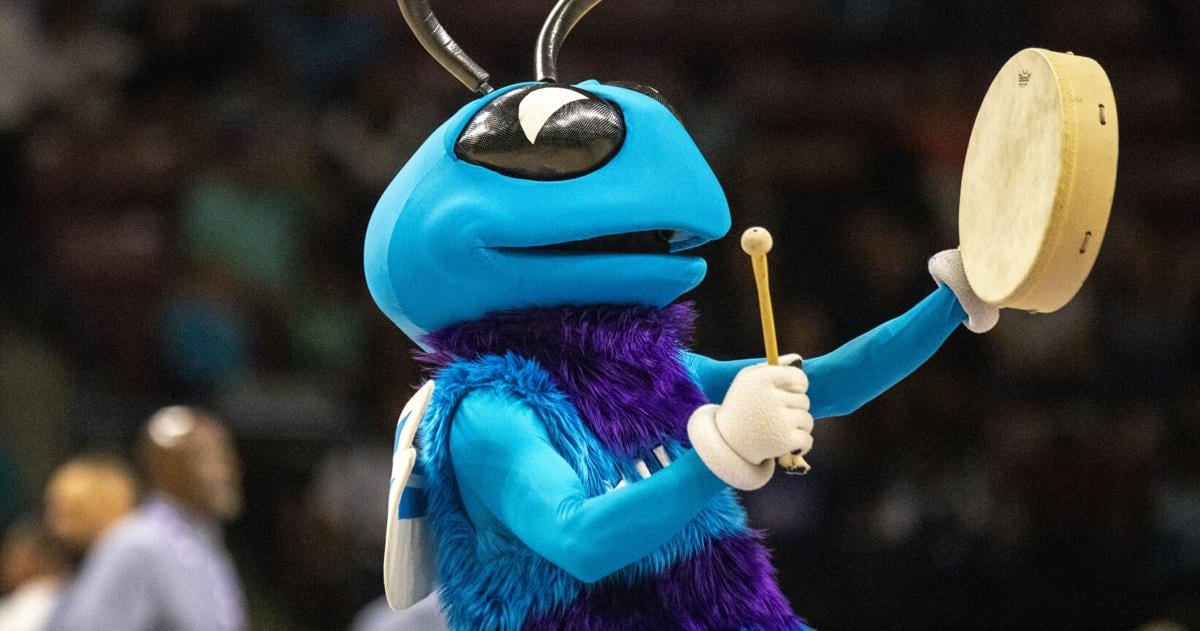Another year, and another NBA team came to Charleston for preseason training camp.
Maybe this one will stick around.
The Charlotte Hornets say their time in Charleston was a success yet stop short of committing to a Holy City return in 2026. After all, there’s a whole season yet to play (Charlotte opens Oct. 22 at home against the Brooklyn Nets).
So much can happen between their Oct. 5 exhibition loss to the Oklahoma City Thunder at the North Charleston Coliseum and next fall. Anyone with the slightest sense of Charlotte’s NBA history will agree.
If you know, you know.
But it’s something they must consider. There’s their familiarity with the city, the easy commute from Charlotte and the way The Citadel’s McAlister Field House feels so appropriate for preseason drills. What’s more sensible than bunkering down for training camp at a military school (which was also paid $25,000 for its services)?
More importantly, forming a regular — if not permanent — connection with Charleston might be the bridge to expanding the Hornets’ brand and fan base. It could help jolt a franchise that doesn’t seem to belong to anyone outside of I-485; definitely not to folks in the Lowcountry.
Still, don’t hate on it. They’re the Charlotte Hornets, not the Carolina Hornets. We get it.
But don’t say it’s a waste of time because the NBA’s cake won’t bake in the college-loving South, either. That’s a tired narrative that turns increasingly stale as more of our neighbors have trickled down from metropolitan areas up north.
They’re familiar with the NBA, and it’s easier for many of them to latch onto a pro team than cast their allegiances to ol’ State U. Who are we kidding, anyhow? The line between professional and amateur sports has evaporated. Thanks to an unrestricted transfer portal, the rosters are also more stable in the pros.
So that pro jersey you buy will be relevant longer.
Low-hanging fruit
Charlotte coach Charles Lee gets it. And he’s only in his second season with the Hornets.
“We’re based in Charlotte,” Lee said at the beginning of training camp, “but I think it’s important that we kind of reach all of our fan base throughout the Carolinas.”
He’s either wise or savvy. Definitely correct.
Take away Charlotte and Raleigh, and there’s essentially a two-state-sized-vacuum for professional sports. Or at least there’s a dearth of teams playing in the majors.
That means just about everything from Hilton Head to New Bern, Beaufort to Asheville is low-hanging fruit for any franchise willing to dirty its hands. Unfortunately, no one has consistently put in the work to harvest those fans.
They profess to belong to two states but don’t see beyond the pine curtain that separates the Carolinas or even their own addresses. Those teams come across as either disconnected (hockey’s Carolina Hurricanes) or disinterested (football’s Carolina Panthers).
Efforts to expand or unify things have been feeble or downright dirty.
York County was nearly ruined when Panthers’ owner David Tepper decided to renege on a deal for a $800 million headquarters. That mixed-use campus was to elevate the community; instead ask folks in Rock Hill about the off-ramp to nowhere.
And the days of the Upstate being able to lay claim to being the Panthers’ second home died not with Jerry Richardson, but basically the day Tepper took over. Think that Wofford misses that money and exposure?
To the Hornets’ credit, at least its full name is honest. You know what you’re getting with the Charlotte Hornets as opposed to their NFL and NHL counterparts.
Yet, ironically, they’re probably making the strongest effort to unite the Carolinas.
Connect early
All of the region’s pro teams do their part in the community, make no mistake about that.
Tepper, despite his faults, doles out plenty of turkeys around Thanksgiving around Charlotte. The Panthers also kick in other ways, primarily around the Old North State. God bless him.
Quick question: when was the last time we saw anything with that “Two States, One Team” mantra the Tepper-owned Panthers were trying to make a thing? Emailed answers would be much appreciated.
Back to the point. The Hurricanes are also active around Raleigh and did their part to help with Hurricane Helene relief. So this isn’t an indictment of who does more in their neighborhood or individual state.
Yet, once more, there are huge swaths of the Carolinas that go untouched. Credit the Hornets for extending hands and seeing huge opportunities for growth.
Most recently, they announced “Impacting the Carolinas” in August. It’s a tour across the states that features thousands of dollars in community donations as well as interactive opportunities for kids at each of six stops. And those stops were all over: Rock Hill, Columbia, Greenville in South Carolina; Concord, Gastonia and Raleigh in North Carolina.
While in Charleston, the Hornets provided a $25,000 grant to the Boys & Girls Clubs of the Crescent Region. That money will fund a pop-up computer lab to expand digital access and promote AI-enhanced tutoring for more than 1,000 students locally across Charleston and Dorchester counties.
“We certainly see ourselves as a Carolinas NBA team,” Mike Behan, chief business and revenue officer for the Charlotte Hornets, said. “And we’re excited about continuing to build the brand across the entire Carolinas.”
Prudent thinking.
You have to figure lots of young basketball fans will be logging into those computers and will remember the interactions along that six-town stop. They’ll feel bonded when they see Hugo on television or a T-shirt.
Connect with them now, and they’ll become ticket-buying fans later. Perhaps also their families and friends will, too.
Why didn’t someone think of that sooner?

